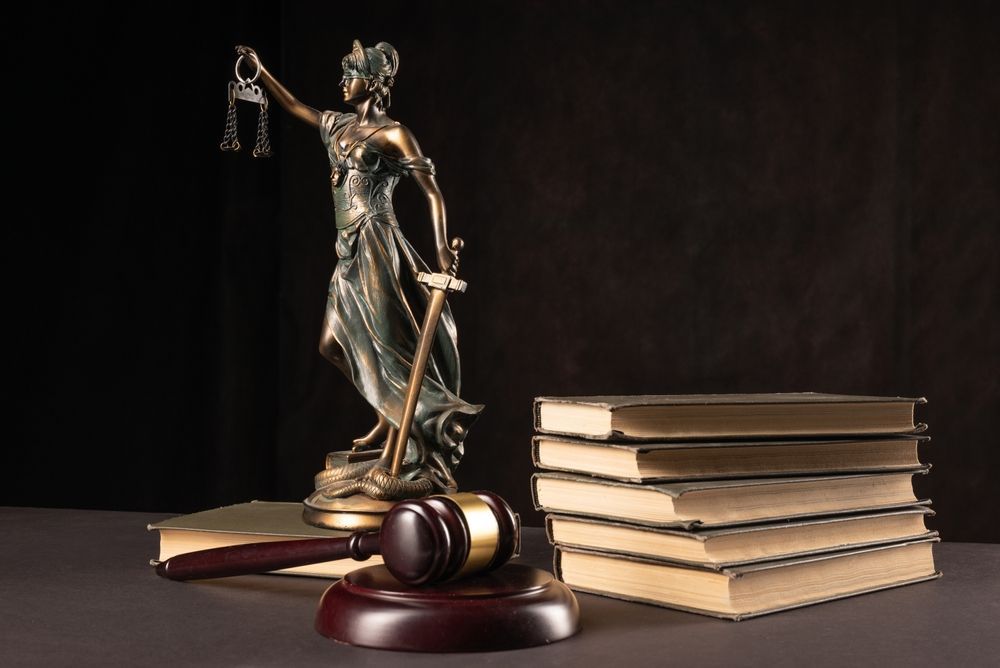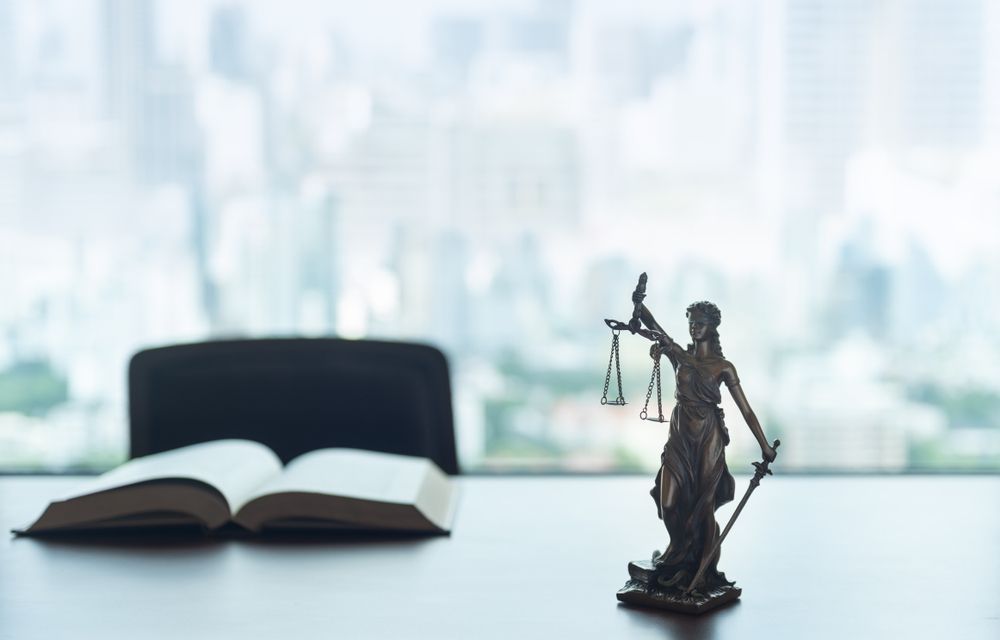Tips for Tackling Car Accident Claim Issues in Georgia
Many car accident victims in Atlanta think the claims process is straightforward. And well, while it is carefully laid out by Georgia law, it can be anything but simple. Reluctant insurers, other drivers involved in the accident, or even attorneys representing them can throw a wrench into something that might have been resolved quickly. Hiring an experienced accident attorney can help overcome any obstacles and get you the compensation you need to recover financially.
Georgia car accident claims, often requiring guidance from a car accident attorney in Atlanta, present unique challenges that can hinder drivers and passengers from receiving fair compensation. Managing insurance demands, evidence collection, and legal details requires a clear understanding and precise action. In this article, Zdrilich Injury Law explains the most common difficulties encountered during car accident claims in Georgia and offers effective strategies to get past them; for example, consulting with a car accident attorney in Atlanta can help clarify legal matters.
Top Difficulties When Filing Car Accident Claims in Georgia
When filing car accident claims in Georgia, claimants often face multiple challenges that may delay or weaken their cases. The following sections outline the key issues and relevant countermeasures.
Delayed Responses From Insurance Adjusters
Insurance adjusters may delay responses immediately after an accident to frustrate claimants and force a low-ball settlement. Such delays affect the timely documentation of injuries and treatment needs. To counter this, it is critical to maintain records of all communications and follow up persistently. Early engagement with an experienced attorney can also help prompt responses and protect your right to timely treatment.
Misunderstandings Regarding Georgia's At-Fault Insurance System
Under Georgia’s at-fault system, determining responsibility directly affects claim success. Many claimants mistakenly assume the other party is solely to blame. In reality, Georgia law requires a detailed analysis of both parties’ contributions through comparative negligence principles. Claimants should obtain clear accident reports and corroborative witness statements. Legal advice is essential to correctly assign fault percentages and maximize the claim’s value.
Insufficient Evidence Gathering at the Accident Scene
Insufficient evidence, such as missing photographs, incomplete incident reports, or a lack of witness contacts, can significantly weaken a claim. Comprehensive documentation, including skid marks, vehicle damage details, and environmental conditions, is pivotal. Expert accident reconstruction specialists can provide additional validation. Maintaining a pre-prepared checklist at the accident scene can help collect all key pieces of evidence.
Disputes Over Pre-Existing Conditions and Injury Severity
Insurance companies may argue that injuries were preexisting or aggravated rather than directly caused by the accident. This challenge is compounded by differing medical opinions. To counter such disputes, claimants should obtain detailed medical records, independent examinations, and expert opinions. Clear documentation that demonstrates a direct causal link between the accident and the injury is critical to securing proper compensation.
Facing Pressure for Quick Low Settlements
Insurers often pressure claimants to accept quick, low settlement offers before the full extent of injuries and long-term issues become apparent. Accepting premature offers can result in inadequate coverage of medical bills, lost wages, and other damages. It is advisable for claimants to document all current and future expenses and consult with a personal injury attorney who can advise on whether a settlement truly reflects the long-term impact of the accident.
Common Challenges When Filing a Car Accident Claim in Georgia
Understanding insurer tactics is vital for claimants to prepare an effective defense. This section highlights common challenges posed by insurers and strategies to overcome them.
Insurers Requesting Excessive or Unnecessary Documentation
Some insurers intentionally request redundant or unrelated documents to prolong the claims process. For example, they may demand multiple copies of the same bills or police reports. To streamline the process, keep a well-organized file of all records and seek professional advice when documentation demands appear excessive. Organized evidence reduces opportunities for insurers to dispute the claim based on incomplete records.
Adjusters Attempting to Obtain Recorded Statements to Undermine Your Claim
Insurance adjusters often request recorded statements soon after an accident. Such recordings can later be used to dispute the extent of injuries. Claimants should consult an attorney prior to giving any recorded statements and provide only factual details. Keeping communications factual and avoiding opinions protects the integrity of the claim and prevents future disputes.
Contesting the Necessity or Cost of Medical Treatments
Insurers may contest whether the prescribed medical treatments are necessary or cost-effective. They might suggest cheaper alternatives rather than cover the extensive medical bills incurred. To counter this, independent medical examinations must be obtained, and detailed records of all treatments and consultations must be maintained. Expert testimonies and comprehensive medical documentation help establish that the recommended treatments are necessary and standard for the injuries sustained.
Insurer Tactics to Minimize Payouts for Vehicle Damage
Insurers sometimes use outdated repair estimates or depreciated values to reduce the payout for vehicle damage. Obtain multiple repair estimates from reputable auto body shops to address this issue. Detailed repair quotes and independent appraisals provide a stronger basis for a fair valuation. An experienced attorney can help negotiate with the insurer so the settlement reflects the actual cost of repairs or replacement.
Bad Faith Practices by Insurance Companies in Georgia
Bad faith practices include prolonged delays, inadequate investigations, or outright denial of valid claims. Recognizing these tactics is essential because they can lead to further financial distress. Claimants should document all communications with the insurer and, if necessary, consider legal action for bad faith. A clear record of such practices can support a more forceful legal or negotiating position.
Overcoming Obstacles to Prove Liability in Georgia Collisions
Establishing liability is crucial for obtaining fair compensation. This section explains how to overcome evidence-related challenges to prove negligence.
Gathering Strong Evidence to Establish Another Party's Negligence
To prove negligence, claimants must gather strong evidence, such as accident reports, photographs showing vehicle damage, and eyewitness statements. Digital evidence from dashcams or surveillance footage can be highly compelling. Bringing in accident reconstruction experts further strengthens the claim by providing professional opinions on the collision dynamics. A well-established timeline and documentation of any traffic violations or unsafe driving behaviors support the negligence claim.
Addressing Shared Fault Under Georgia's Modified Comparative NegligenceRule
Under Georgia’s modified comparative negligence rule, a claimant may still recover damages even if partly at fault, as long as their fault is below 50%. However, proving shared fault requires clear and convincing evidence. Detailed documentation of roadway conditions, vehicle speeds, and driver conduct is essential. Consulting an accident reconstruction specialist can help objectively assess each party’s contribution to the accident.
Utilizing Police Reports and Witness Testimonies Effectively
Police reports provide an impartial account of the accident and often include witness statements. Verifying and addressing any discrepancies in these reports early with law enforcement can reinforce the claim. Additionally, collecting prompt and detailed statements from multiple witnesses adds credibility and creates a compelling narrative in favor of the claimant.
Countering Disputed Accounts of the Accident Events
Conflicting accounts of the accident can weaken a claim. Insurers may present alternative narratives that contradict the claimant’s version of events. To overcome this, it is crucial to align personal recollections with physical evidence and third-party testimonies. Consistency among witness statements and supportive forensic evidence helps neutralize disputes and reinforce the claimant’s version of events.
Working With Accident Reconstruction Specialists When Necessary
When accident details are complicated or disputed, accident reconstruction specialists are indispensable. They analyze factors such as vehicle speed, skid marks, and damage patterns to objectively determine how the accident occurred. Their expert evaluations can clarify contested details and significantly enhance the credibility of a claim during negotiations or litigation.
Effectively Calculating and Substantiating Your Claim's True Value
Determining the true value of a car accident claim involves thoroughly estimating economic and non-economic damages. Accurate documentation is crucial so all losses are properly compensated.
Compiling All Medical Bills and Projecting Future Medical Needs
Claimants should compile all medical expenses incurred from emergency room visits, hospital stays, physical therapy, and follow-up treatments. Additionally, projected expenses such as long-term rehabilitation, prescription costs, and potential future surgeries must be factored into the claim. Detailed, itemized records and expert opinions on future care are crucial for demonstrating the full financial burden of the accident.
Documenting Lost Wages and Diminished Earning Capacity
Loss of income due to an inability to work is a central component of many claims. It is essential to document every instance of work absenteeism and provide supporting evidence such as pay stubs and tax returns. In cases where injuries have led to diminished earning capacity, vocational assessments and expert evaluations can help quantify the long-term impact on career earnings.
Quantifying Pain, Suffering, and Emotional Distress for Your Claim
Non-economic damages such as pain, suffering, and emotional distress, though subjective, are critical components of a comprehensive claim. Medical records, psychological evaluations, and personal testimonies provide the necessary support to assign a monetary value to these losses. Lawyers argue that compensation for pain and suffering should reflect both the injury's severity and the recovery period's length.
Obtaining Fair Repair or Replacement Estimates for Your Vehicle
Obtaining multiple repair estimates is key to substantiating the vehicle damage portion of a claim. An independent appraisal can offer a balanced view of the vehicle’s market value and expected depreciation. Documented evidence, such as photographs of damage and original purchase records, further strengthens the case against low-ball estimates offered by insurers.
Resisting Premature or Inadequate Offers From the Insurer
Insurance companies may try to settle quickly with offers that undervalue the total losses. Claimants should resist premature settlements until all associated costs, including future medical needs and loss of income, are accurately assessed. Detailed documentation and professional legal guidance help guarantee that the final settlement comprehensively addresses both immediate and long-term damages.
Claim Denials and Unfair Settlement Offers in Georgia
When a claim is denied or met with an unreasonably low offer, it is essential to understand the insurer’s reasoning and mount a well-supported response.
Understanding the Stated Reasons for a Claim Denial
Insurers typically provide reasons such as insufficient evidence, contributory negligence, or non-compliance with policy conditions when denying a claim. Carefully reviewing the denial letter and comparing it with your documentation can help pinpoint any inconsistencies. Gathering all correspondence and detailed explanations creates a solid foundation for an appeal.
Crafting a Persuasive Appeal for a Denied Car Accident Claim
A successful appeal requires addressing each denial point with clear, factual evidence. This includes referencing police reports, medical records, repair estimates, and independent accident reconstructions. An appeal letter that systematically refutes the insurer’s rationale, supported by legal precedent under Georgia law, is key to overturning a denial.
Negotiating Skillfully for a Higher Settlement Amount
Negotiation is often necessary to obtain fair compensation. This requires coupling detailed evidence with expert opinions and sometimes involves third-party mediators. Firmly presenting documented medical bills, lost wages, and repair costs, claimants can better negotiate for a higher settlement. Persistence and precise data are vital during these discussions.
Knowing When to Reject an Insufficient Offer
Claimants must be prepared to reject offers that do not cover all medical costs, lost income, pain and suffering, and future needs. Accepting a low offer can result in irrecoverable losses. Consulting with a personal injury attorney helps determine when an offer is insufficient and helps any settlement fully reflect the total damages incurred.
Exploring Mediation or Arbitration as Alternatives to Litigation
If negotiations with the insurer stall, mediation or arbitration can serve as effective alternatives to formal litigation. These alternative dispute resolution methods offer a less adversarial and often faster means of resolving disputes over liability and damages. Many attorneys recommend mediation to preserve claimant rights while moving toward a fair and timely settlement.
Steps to Take When Georgia Car Accident Claim Complications Arise
Even with careful preparation, complications can occur during the claims process. The following steps help protect your rights throughout.
Recognizing When Self-Representation Becomes Too Difficult
While handling a claim without legal assistance might seem cost-effective, the difficulties of car accident cases typically require professional expertise. Repeated delays, evidenced disputes, or confusing documentation requests signal that self-representation may lead to suboptimal outcomes. Seeking professional guidance early on can prevent reduced settlements or outright claim denials.
Seeking a Consultation With an Experienced Georgia Car Accident Attorney
An attorney experienced in Georgia car accident claims can assess all facets of the incident, from reviewing police reports and medical records to handling negotiations with insurers. Such expertise not only strengthens the documentation but also effectively presents every element of the claim, thereby maximizing compensation and reducing additional stress during recovery.
The Statute of Limitations for Filing a Lawsuit in Georgia
Georgia law imposes strict deadlines for filing personal injury lawsuits. Missing these deadlines can forfeit your right to further compensation. It is imperative to be well-informed about these time limits and to complete all necessary filings and documentation promptly. This proactive approach safeguards your claim and underscores the importance of timely legal action.
Preparing Your Case for Potential Litigation if Negotiations Fail
If a fair settlement cannot be reached through negotiation, preparing for litigation becomes necessary. This process involves compiling a comprehensive record of all evidence, including photographs, medical reports, repair estimates, and statements, and obtaining expert testimonies. A well-prepared case minimizes surprises in court and increases the likelihood of a favorable judicial outcome.
Protecting Your Rights Throughout the Entire Claims Process
Protecting your rights throughout all phases of a car accident claim is paramount. This means avoiding unsolicited recorded statements and not accepting settlement offers without complete review. Keeping a detailed log of all communications with insurers, medical providers, and legal representatives means every step of the process is well-documented and legally compliant.
Frequently Asked Questions
Q: How can I speed up the insurance adjuster’s response after my accident?
A: Keep detailed records of all communications and promptly supply accurate documentation. Persistent follow-up and consultation with an attorney can encourage faster responses.
Q: What if the insurance company disputes my medical treatment needs?
A: Counter disputes by obtaining independent medical opinions and thorough documentation. Expert testimony and a comprehensive review by a personal injury attorney can validate your treatment requirements.
Q: How do I prove shared fault under Georgia law?
A: Georgia’s modified comparative negligence system requires overwhelming evidence, such as police reports, eyewitness testimonies, and accident reconstructions, to delineate each party's fault.
Q: When should I consider mediation or arbitration?
A: If negotiations stall, mediation or arbitration can provide a faster, less adversarial resolution. These methods are useful when both parties are open to compromise but cannot agree on settlement amounts.
Q: What documents are essential for substantiating a claim?
A: Essential documents include police reports, medical records, repair estimates, pay stubs, and all communications with the insurer. Complete and accurate documentation is critical for building a strong case.
Q: What steps should I take if my claim is initially denied?
A: Review the denial letter to determine the reasons for denial, gather additional supporting documentation, and then craft a persuasive appeal. Consulting an experienced attorney greatly increases the chances of overturning the decision.
Q: How does the statute of limitations affect my accident claim?
A: Personal injury claims in Georgia must be filed within a specific time frame. Acting promptly is crucial, as missing the deadline forfeits your right to seek further compensation.
Q: Can I negotiate a higher settlement without going to court?
A: Yes, many cases are resolved through skilled negotiation. However, if the insurer remains inflexible, legal action may be necessary. An experienced attorney can advise on effective negotiation strategies.
Q: What role does an accident reconstruction specialist play in my case?
A: An accident reconstruction specialist objectively analyzes physical evidence from the accident scene to establish fault. Their expert insights can be decisive, especially when there are conflicting accounts.
Q: How do insurance companies use recorded statements against my claim?
A: Insurers can use recorded statements to highlight inconsistencies or exaggerations in your account. Consult an attorney before providing any recorded statement, and answer questions succinctly and factually.
Filing a car accident claim in Georgia involves overcoming challenges such as delayed insurer responses, disputes over evidence or fault, and tactics designed to minimize payouts. By understanding these difficulties and employing robust evidence-gathering and negotiation strategies, claimants can build a strong case to secure fair compensation. Consulting a specialized attorney means every aspect of your claim is professionally managed and your rights are fully protected.
Zdrilich Injury Law stands ready to assist those facing these obstacles by providing personalized and aggressive legal representation. Injured individuals can overcome insurance hurdles through detailed evidence gathering, strategic negotiation, and comprehensive legal analysis and obtain the justice and compensation they deserve.
Recent Posts






Attorney Joseph Zdrilich
Attorney Joseph A. Zdrilich is the founder of Zdrilich Injury Law and has represented injured clients across Georgia since 2007. He is a graduate of the University of Richmond and Syracuse University College of Law and has handled both bench and jury trials in personal injury, workers’ compensation, trucking, and auto accident cases. He is admitted to practice in all Georgia state courts, the U.S. District Courts for the Northern and Middle Districts of Georgia, and the Eleventh Circuit Court of Appeals. If you were injured due to someone else’s negligence, contact Zdrilich Injury Law today for a free legal consultation.
GET A FREE CONSULTATION TODAY
INJURED? TAKE YOUR LIFE BACK!
Zdrilich Injury Law is committed to helping injured Georgians receive the money they need to recover physically and financially after an accident.
